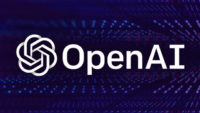No-Code AI and Prediction Tools Bring Coding to the People
March 22, 2022
A new AI revolution is underway, turning people who know little about coding into developers. Called “no code,” startups are emerging to productize this new category, which essentially lets people use familiar, clickable web interfaces and even natural language to automate tasks or create simple applications, while machine learning takes over the rest. Proponents predict it will be a game-changer, powering a brigade of “citizen developers” to leverage artificial intelligence without knowing how to write code. Startups entering the space include Juji, which makes creating AI chatbots as easy as programming PowerPoint.
Google’s Teachable Machine and Microsoft’s Lobe.ai are other tools forging this path. “Just as clickable icons have replaced obscure programming commands on home computers, new no-code platforms replace programming languages with simple and familiar web interfaces,” writes The New York Times, quoting “no-code evangelist” Craig Wisneski — co-founder of Akkio, an automated way to construct predictions from data — saying, “We are trying to take AI and make it ridiculously easy.”

“It used to require a team of engineers to build a piece of software, and now users with a web browser and an idea have the power to bring that idea to life themselves,” NYT adds, explaining how Microsoft engineer Sean Cusack was able to use the company’s fledgling Lobe to create a program to parse thousands of insect photos for data relevant to his bee-keeping hobby.
Despite his title, Cusack told NYT the data science for his program was beyond his expertise. The Lobe platform, NYT writes, “allowed him to drag and drop sample photos and click a few buttons to make a system” that could accomplish his objective.
“Advances in AI itself are making no-code platforms more powerful,” NYT reports, explaining that “OpenAI, the company co-founded by Elon Musk, has a vast AI system, GPT-3, that can write code when prompted with simple English.”
Wired explains that OpenAI developers “have already built demos that let a layperson write simple apps just by describing what they want: ‘Make me a personal website with PayPal embedded for payments,’ or ‘Write an app that finds travel expenses in my bank statements and puts them in a spreadsheet.’”
In addition to OpenAI’s Copilot, buzzy code prediction tools include Tabnine, which supports over 23 programming languages, and AlphaCode, from Alphabet’s DeepMind, an AI tool “trained using open source code from GitHub” that “can perform complex coding tasks better than the average programmer and could lead to the AI that can change itself,” writes Information Age.
In addition to making things exponentially easier for professional coders, such platforms prompt Wired to envision “a sort of Gutenbergian eruption where anyone — from artists to bureaucrats to criminals to high school students — can automate their lives in a heartbeat.”

No Comments Yet
You can be the first to comment!
Sorry, comments for this entry are closed at this time.